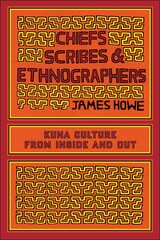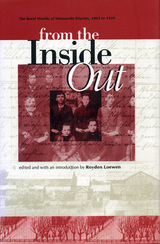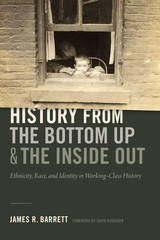5 books about Inside Out

Changing Corporate America from Inside Out
Lesbian and Gay Workplace Rights
Nicole C. Raeburn
University of Minnesota Press, 2004

Chiefs, Scribes, and Ethnographers
Kuna Culture from Inside and Out
By James Howe
University of Texas Press, 2009
The Kuna of Panama, today one of the best known indigenous peoples of Latin America, moved over the course of the twentieth century from orality and isolation towards literacy and an active engagement with the nation and the world. Recognizing the fascination their culture has held for many outsiders, Kuna intellectuals and villagers have collaborated actively with foreign anthropologists to counter anti-Indian prejudice with positive accounts of their people, thus becoming the agents as well as subjects of ethnography. One team of chiefs and secretaries, in particular, independently produced a series of historical and cultural texts, later published in Sweden, that today still constitute the foundation of Kuna ethnography. As a study of the political uses of literacy, of western representation and indigenous counter-representation, and of the ambivalent inter-cultural dialogue at the heart of ethnography, Chiefs, Scribes, and Ethnographers addresses key issues in contemporary anthropology. It is the story of an extended ethnographic encounter, one involving hundreds of active participants on both sides and continuing today.
[more]

From the Inside Out
The Rural Worlds of Mennonite Diarists
Royden Loewen
University of Manitoba Press, 1999
Historian Royden Loewen has brought together selections from diaries kept by 21 Mennonites in Canada between 1863 and 1929, some translated from German for the first time. By skillfully comparing and contrasting a wide cross-section of lives, Loewen shows how these diaries often turn the hidden contours of household and community "inside out." The writers featured were ordinary rural people: young women and grandmothers, rural preachers and landless householders. They include a teenaged boy who immigrated from Russia to Manitoba in 1875 as well as a successful merchant, a traveling evangelist, and a devout, conservative church elder. An elderly grandfather recounted the daily circuit of his children's homes, while 19-year-old Marie Schoeder wrote of her literary aspirations, her "secret hope" that some day she would "write things that have a real worth, things that are worth printing, and things that other folks would love to read and pay for." From the Inside Out also contrasts diaries from two distinct Mennonite communities in Canada. The Swiss-American Mennonites in Waterloo County, Ontario, faced rapid urbanization, while the Dutch-Russian Mennonites in southern Manitoba maintained their more rural environment. The diaries mirror their writers' preoccupations with work and weather, but they also reveal a communityís social structure and round of activities such as weddings, funerals, and worship services. In the process of diary-keeping, the writers sought to make sense of a dynamic and often unpredictable world. Reading what they chose to record is to learn much about their culture. Their writings provide glimpses of their lives, their collective mindset, and their history as a people.
[more]

History from the Bottom Up and the Inside Out
Ethnicity, Race, and Identity in Working-Class History
James R. Barrett
Duke University Press, 2017
In History from the Bottom Up and the Inside Out James R. Barrett rethinks the boundaries of American social and labor history by investigating the ways in which working-class, radical, and immigrant people's personal lives intersected with their activism and religious, racial, ethnic, and class identities. Concerned with carving out space for individuals in the story of the working class, Barrett examines all aspects of individuals' subjective experiences, from their personalities, relationships, and emotions to their health and intellectual pursuits. Barrett's subjects include American communists, "blue-collar cosmopolitans"—such as well-read and well-traveled porters, sailors, and hoboes—and figures in early twentieth-century anarchist subculture. He also details the process of the Americanization of immigrant workers via popular culture and their development of class and racial identities, asking how immigrants learned to think of themselves as white. Throughout, Barrett enriches our understanding of working people’s lives, making it harder to objectify them as nameless cogs operating within social and political movements. In so doing, he works to redefine conceptions of work, migration, and radical politics.
[more]

Kicking Ass in a Corset
Jane Austen’s 6 Principles for Living and Leading from the Inside Out
Andrea Kayne
University of Iowa Press, 2021
What can organizational leaders in business, education, government, and most any enterprise learn from an unemployed, unmarried woman who lived in patriarchal, misogynistic rural England more than 200 years ago? As it turns out, a great deal. In identifying the core virtues of Austen’s heroines—confidence, pragmatism, diligence, integrity, playfulness, and humility—Andrea Kayne uncovers the six principles of internally referenced leadership that, taken together, instruct women how to tap into a deep well-spring of personal agency and an internal locus of control no matter what is going on around them. Utilizing practical exercises, real-life case studies, and literary and leadership scholarship, Kicking Ass in a Corset maps out effective leadership that teaches readers how to tune out the external noise and listen to themselves so that they can truly live and lead from the inside out.
[more]
READERS
Browse our collection.
PUBLISHERS
See BiblioVault's publisher services.
STUDENT SERVICES
Files for college accessibility offices.
UChicago Accessibility Resources
home | accessibility | search | about | contact us
BiblioVault ® 2001 - 2024
The University of Chicago Press









